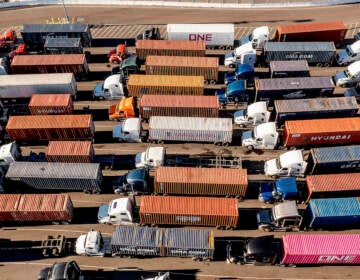The global garment industry: Bangladesh, workers’ safety and us
ListenGuests: Scott Nova and Pietra Rivoli
After last month’s factory fire in Bangladesh that killed over 1,000 workers, three of the world’s largest clothing manufacturers have agreed to a plan that would require retailers to help pay for safety improvements to the buildings where their apparel is made. In addition, the agreement requires factory inspections and calls for companies to stop dealing with businesses that refuse to make necessary repairs. In Bangladesh, the government has agreed to a plan that would make it easier for workers to unionize. Besides working in unsafe conditions, garment workers earn just $37 a month and efforts to form unions are actively suppressed. Are these developments significant and do they represent a turning point in the global garment industry when it comes to unfair labor practices and worker safety? What role do U.S. trade policies and U.S. companies play? And are U.S. consumers willing to contribute to improving working conditions in third world countries by paying more for their clothes? We’ll get the answers from SCOTT NOVA , executive director of the Worker Rights Consortium, and PIETRA RIVOLI professor of business at Georgetown University and author of The Travels of a T-Shirt in the Global Economy.
WHYY is your source for fact-based, in-depth journalism and information. As a nonprofit organization, we rely on financial support from readers like you. Please give today.





